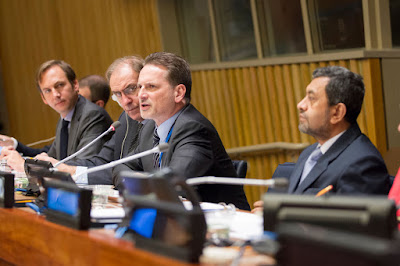Decolonization in the Caribbean #3: A Colony With No Name
Being from a colony and engaging with the United Nations can be a surreal experience. It can be intoxicating in terms of experiencing new possibilities, but also feel so grinding and draining when confronted with the networks of power around you, from which you still remain excluded. I base these notions on my own experiences, but also discussions with others and just a general analysis of what it is like to be a contemporary colony. In 2007 I testified before the 4 th Committee at the UN and I have testified at the Committee of 24 regional seminars on four occasions. In my dissertation in Ethnic Studies from UCSD, I incorporated an anecdote from my experience before the 4 th Committee that helped inform greatly my analysis of sovereignty and Guam’s colonial status. It dealt with a broken microphone during my testimony. Perhaps I will share it another time. The surreal nature of this experience derives from loving, representing and fighting for a place that isn’t supposed
